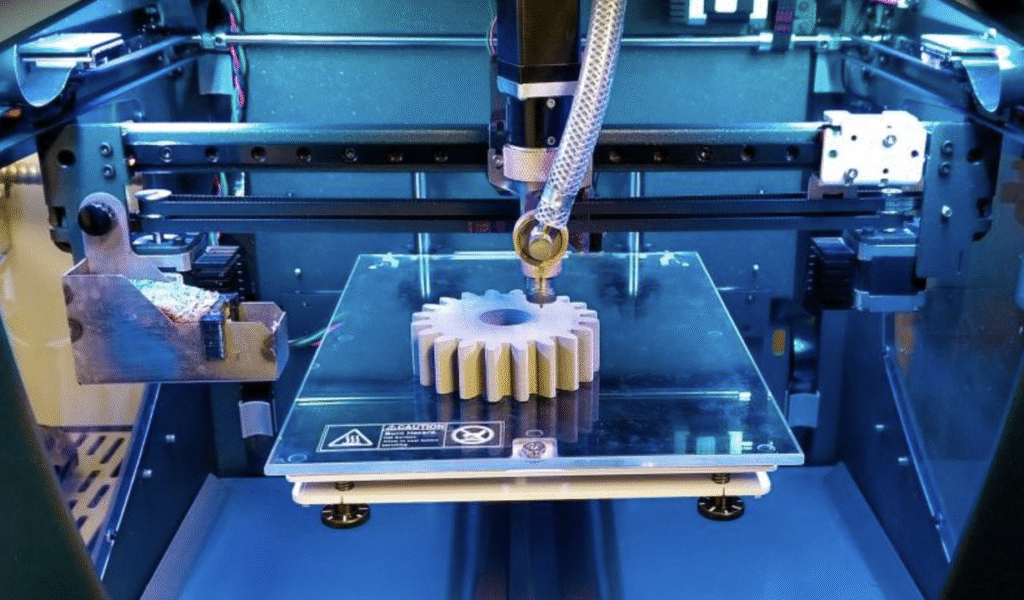Artificial Intelligence

In a world where Artificial Intelligence (AI) is evolving rapidly, many professionals worry about the future of their careers. Will AI replace humans? Can machines perform all job roles better than people? The truth lies somewhere in between.
AI has made great strides in streamlining operations, automating repetitive tasks, and improving productivity across industries. From customer support chatbots to AI-driven analytics, this technology is transforming the way businesses operate. However, despite these advancements, AI cannot and will not completely replace human beings in the workplace—especially not in a country as dynamic and diverse as India.
In this detailed blog, we explore six strong and practical reasons why AI can’t replace humans at work and how Indian professionals can adapt, grow, and thrive in the age of intelligent machines.
1. Emotional Intelligence Is Unmatched by AI

One of the most significant differences between humans and machines is emotional intelligence—a key skill required in the workplace. Humans are social beings, capable of empathy, compassion, and emotional connection—qualities that no AI model can replicate authentically.
Why Emotional Intelligence Matters in the Workplace
- Client Relationships: In sales, marketing, or customer service, understanding a client’s emotions can be the deciding factor between closing a deal or losing one.
- Team Management: Leaders and managers use emotional intelligence to build team morale, manage conflicts, and create healthy work environments.
- Indian Work Culture: Emotional bonding is deeply rooted in Indian corporate culture. Greeting your colleagues, celebrating festivals together, or understanding personal issues at work builds trust—something AI lacks the capacity for.
While AI can simulate conversations or facial recognition, it does not understand cultural context, human values, or emotional depth.
2. AI Depends Entirely on Human Input
AI, no matter how advanced, is limited by the data and instructions it receives from humans. It cannot operate or evolve beyond the datasets and algorithms it’s been trained on.
What This Means in Real-World Scenarios
- Dynamic Environments: In sectors like agriculture, construction, and healthcare, workers often face unpredictable situations. AI cannot handle real-time decision-making without human intervention.
- Creative Problem Solving: AI can’t think intuitively or consider real-world limitations without proper guidance. Human experience plays a vital role in adapting to change.
For example, in the Indian manufacturing sector, where daily operations vary due to weather, labor availability, or material shortages, human foresight and improvisation remain critical.
3. Creativity Can’t Be Programmed
Creativity is what drives innovation, storytelling, brand building, and product development—areas where humans still reign supreme.
Why AI Can’t Compete with Human Creativity
- Art & Design: Graphic designers, artists, filmmakers, and content creators bring personal experiences, imagination, and emotions to their work.
- Marketing and Advertising: Successful ad campaigns often resonate emotionally. Indian brands like Amul or Surf Excel rely on cultural humor, nostalgia, and social relevance—something no AI can imitate.
- Entrepreneurship: Startups thrive on fresh ideas and out-of-the-box thinking. AI can’t come up with a disruptive business model or launch a revolutionary product.
Even with generative AI tools like ChatGPT or MidJourney, creativity is still human-led. These tools are assistants, not originators.
4. Soft Skills Are Exclusively Human
While AI may be efficient in task completion, it fails miserably when it comes to soft skills—the human traits that shape behavior, leadership, communication, and teamwork.
Must-Have Soft Skills That AI Can’t Learn
- Collaboration
- Adaptability
- Critical Thinking
- Time Management
- Interpersonal Skills
For instance, in an Indian startup environment, where roles are fluid and communication is key, soft skills often outweigh technical qualifications. Whether you’re leading a team in an IT firm in Bangalore or managing customer service in a retail outlet in Delhi, your soft skills help you connect, lead, and inspire.
These skills are honed over time and shaped by culture, upbringing, and personal values—areas where AI is completely out of depth.
5. Humans Build, Train, and Manage AI
It’s ironic, but true—AI needs humans to exist. From writing algorithms and cleaning data to monitoring AI performance and ensuring ethical use, humans are essential to the AI ecosystem.
The Human-AI Cycle
- Data Engineers curate and manage the massive datasets AI learns from.
- Machine Learning Developers create, update, and optimize algorithms.
- AI Ethics Professionals ensure AI doesn’t perpetuate discrimination or bias.
- AI Trainers and Prompts Engineers help tools like ChatGPT understand human language better.
This means, instead of eliminating jobs, AI is creating new job roles—especially in India, where the AI and IT industries are booming. With the right training, Indian youth can leverage AI for high-paying careers.
6. AI Complements Rather Than Replaces Human Intelligence
AI is not here to replace us—it’s here to assist us. When used effectively, AI can increase efficiency, accuracy, and decision-making, but it should be seen as a collaborative tool, not a competitor.
How AI Is Enhancing Human Capabilities in India
- Healthcare: AI helps doctors with faster diagnostics, but human doctors still make the final call.
- Education: AI tools aid teachers in assessments, but mentoring and moral guidance come from educators.
- Banking: Chatbots handle FAQs, but financial advice still requires expert human judgment.
Instead of fearing AI, we should focus on how to work alongside it. Indian professionals and students can upskill themselves with AI knowledge while retaining their core human values and skills.
Additional Insights: AI and Job Market in India
Will AI Take Over Indian Jobs?
According to the World Economic Forum, AI is expected to displace around 85 million jobs globally by 2025, but it will also create 97 million new jobs in areas such as data analysis, machine learning, cybersecurity, and AI training.
What Jobs Are Safe From AI?
Some professions that are least likely to be replaced by AI include:
- Teachers
- Doctors and Nurses
- Psychologists and Counselors
- Writers and Creatives
- Legal Advisors
- Project Managers
- Social Workers
- Human Resource Professionals
High-Demand Human Skills in AI Era
- Critical Thinking
- People Management
- Emotional Intelligence
- Decision-Making
- Complex Problem Solving
How Indian Professionals Can Stay Relevant in the Age of AI
To make sure AI doesn’t make your skills obsolete, here are practical tips:
- Learn AI Tools: Familiarize yourself with ChatGPT, Bard, Midjourney, and other AI platforms.
- Improve Soft Skills: Focus on leadership, negotiation, and communication.
- Stay Updated: Follow tech news, trends, and innovations.
- Upskill in Human-Centric Roles: Pursue careers in teaching, content creation, counseling, or customer relations.
- Develop a Growth Mindset: Be open to learning and adapting continuously.
Final Thoughts: Humans Are Irreplaceable
While Artificial Intelligence continues to shape the future of work, it cannot replicate the very qualities that make us human—empathy, intuition, creativity, and emotional intelligence. The future of work in India lies not in resisting AI, but in embracing it as a tool while continuing to develop the uniquely human skills that machines will never master.
So, instead of asking “Will AI replace me?”, ask “How can I work with AI and grow in my career?”
In India’s vibrant economy, where human connections matter just as much as efficiency, there will always be a place for people in the workforce.
Frequently Asked Questions (FAQs)
Q1: Can AI completely replace humans in the workplace?
No, AI can’t fully replace humans because it lacks emotional intelligence, creativity, and soft skills.
Q2: What jobs are safe from AI?
Jobs requiring emotional connection, creativity, leadership, and critical thinking are safe—like teaching, medicine, writing, counseling, and management.
Q3: How can Indians prepare for an AI-driven future?
Upskill in AI tools, improve soft skills, take online certifications, and explore careers in AI management and ethics.
Q4: What are the limitations of AI?
AI depends on input data, lacks emotional intelligence, cannot think creatively, and is incapable of ethical reasoning without human oversight.
Q5: Will AI create new jobs in India?
Yes, AI will generate millions of jobs in IT, data analysis, training, security, and AI ethics sectors.

